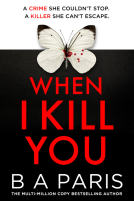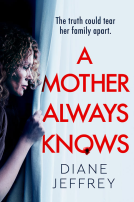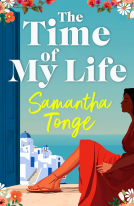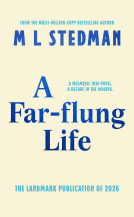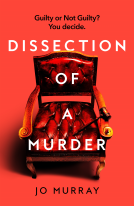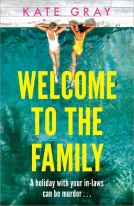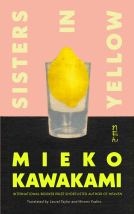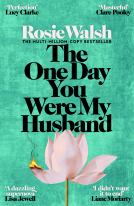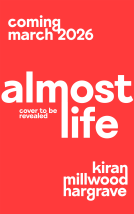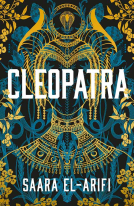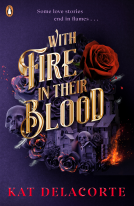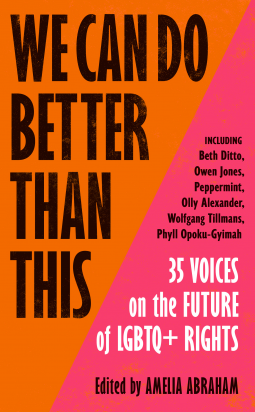
We Can Do Better Than This
35 Voices on the Future of LGBTQ+ Rights
by Amelia Abraham (Editor)
This title was previously available on NetGalley and is now archived.
Send NetGalley books directly to your Kindle or Kindle app
1
To read on a Kindle or Kindle app, please add kindle@netgalley.com as an approved email address to receive files in your Amazon account. Click here for step-by-step instructions.
2
Also find your Kindle email address within your Amazon account, and enter it here.
Pub Date 3 Jun 2021 | Archive Date 3 Aug 2021
Random House UK, Vintage | Vintage
Talking about this book? Use #WeCanDoBetterThanThis #NetGalley. More hashtag tips!
Description
How can we create a better world for LGBTQ+ people? 35 extraordinary voices share their stories and visions for the future.
We talk about achieving 'LGBTQ+ equality', but around the world, LGBTQ+ people are still suffering discrimination and extreme violence. How do we solve this urgent problem, allowing queer people everywhere the opportunity to thrive?
In We Can Do Better Than This, 35 voices explore this question. Through deeply moving stories and provocative new arguments on safety and visibility, dating and gender, care and community, they map new global frontiers in the fight for LGBTQ+ rights.
Pabllo Vittar pleads for the end of hate murders, Olly Alexander champions inclusive sex education in schools, and Beth Ditto calls for a revolution in representation. Elsewhere, Mykki Blanco sets out a vision to end HIV stigma, Owen Jones demands improved LGBTQ+ mental health services, and Travis Alabanza imagines a world without gender policing.
Moving from the UK and USA to Russia, Bangladesh and beyond, this is a guide to understanding the crucial issues facing LGBTQ+ people today. But it's also a passionate call to action and an important manifesto for how - together - we can start to create a better future.
Edited by journalist and author Amelia Abraham, with writing from:
Peppermint - Wolfgang Tillmans - Olly Alexander - Jonathan Anderson - Pabllo Vittar - Naoise Dolan - Amrou Al-Kadhi - Shura - Beth Ditto - Owen Jones - Riyadh Khalaf - Tom Rasmussen - Mykki Blanco - Phyll Opoku-Gyimah - Travis Alabanza - Yasmin Benoit - Mazharul Islam - Kate Bornstein - Adam Eli - Shon Faye - Fox Fisher - Hanne Gaby Odiele - Sasha Kazantseva - Andrew Gurza - Holland - Levi Hord - Juliet Jacques - Leticia Opio - madison moore - Matthew Riemer (@LGBT_History) - Vincent Desmond - Juno Roche - Bobbi Salvör Menuez - Carl Siciliano
Available Editions
| EDITION | Other Format |
| ISBN | 9781529113303 |
| PRICE | £14.99 (GBP) |
| PAGES | 384 |
Average rating from 38 members
Featured Reviews
We Can Do Better Than This: 35 Voices on the Future of LGBTQ+ Rights is a collection of short essays by various contributors that set out the present and future of areas such as healthcare, community, and visibility for LGBTQ+ people. Covering topics across the UK and USA but also Uganda, Russia, Bangladesh, Brazil, and more, the book manages to get a great breadth of material from people doing work or who have personal experience in these areas. It opens with essays on the topic of 'safety', highlighting the dangers faced by many people in the present day, and then does on to cover visibility, dating, love and family, health and social care, going beyond the binary, and community and organising.
What is particularly impressive the range both of topics covered and of people involved, with famous names in various areas contributing to the collection. Everyone is going to have essays that particularly speak to them—I personally found Juliet Jacques' look at transphobia and the UK media particularly powerful as it charted the history of the UK media's treatment of trans people, which obviously is a pressing and depressing subject. A lot of the international essays taught me about what is happening in other countries, and it's good to get that balance alongside the UK-focused contributions. I also liked Yasmin Benoit's look at asexual visibility, especially non-white asexual people, Amelia Abraham's essay on gendered sporting frameworks and how they need updating, and Travis Alabanza's imagining of a trans future without surveillance.
I didn't expect the collection to be able to cover so many different interesting topics and futures for LGBTQ+ people, but by keeping the essays short, the book both covers a lot and stays readable and engaging, suggesting you should go away and find out more if it's something new to you. It serves as a reminder that globally there is still a lot to do and also that by imagining futures and setting out the change that needs to happen, more people can be drawn into being a part of making that change.
We Can Do Better Than This is a timely collection of short essays portraying a variety of voices within the wide spectrum of the LGBTQIA+ community. It is a must read for both allies and queer folks, as it is our responsibility to learn more about ‘the other letters’ if we want to create a welcoming, friendly and supportive community, which offers everyone the unconditional acceptance we would like to receive. The book also brilliantly explores realities outside the UK and US, including voices from Brazil, Uganda, Russia and Bangladesh, giving anglophone readers a glimpse of the extreme hardship and danger siblings around the world have to face in order to live their truth. These experiences are a painful reminder not to give any hard-fought rights for granted and to recognise these privileges, treating them as a springboard to keep fighting and help others who are currently more disadvantaged.
I was particularly excited about this collection because I knew the work of some of its contributors including Travis Alabanza, Fox Fisher, madison moore, Juno Rocher and Amrou Al-Kadhi. I was really moved by the personal experiences they shared in their essays, which one cannot always get to know when simply following their public profiles. I also appreciated the representation of the Asexual community through Yasmin Benoit, who makes a brilliant overall summary of the main issues around aces invisibility and their eagerness to belong. The pace of the collection makes it a very smooth, yet intense read. The essays are just the right length for their authors to express their points eloquently while allowing the reader to jump from one article to the next, curious to learn more.
It was also interesting to read about the issue of representation, a common theme mentioned by most of the contributors. The weight and power of capitalism and mainstream culture are taking a toll throughout the community. They are preventing rightful representation of the non-binary and intersex communities in everyday life, elite sports and official recognition in the health and public administration systems. They are imposing a misleading media representation of trans people, divided between trending #TransformationTuesdays with Instagram accounts used as personal fundraising platforms, and media coverage in which LGBTQIA+ opponents are the only ones ‘able to frame the discussions’. The struggle continues in entertainment programmes, where most queer people’s plotlines are only revolving around how they can be more queer instead of living everyday lives like the everyday people they are, and also includes the problematic closure of physical queer spaces, making it more difficult for LGBTQIA+ folks to safely meet new people. The common wish seems to be an acknowledgment of the importance of a realistic representation, aimed both at the community and at the general public, which goes beyond portraying stereotypical views of what being queer means.
The main message of this collection I am taking away with me is that all members of the community are equally valid and worthy of respect, visibility, human rights and love. We are living in a tricky time in which attacks and hurtful remarks are coming from both inside and outside the community, and many energies are wasted in shame, anger, and pointless debates to defend our existence. The message of unity and the reminder of the importance of education among the different queer groups and across different countries, makes this work a tough summary of the present time and a hopeful action plan for the future.
